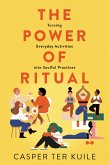FINALIST FOR THE 2024 GOTHAM BOOK PRIZE
The devolution of the Sullivan Institute, from psychoanalytic organization to insular, radical cult.
In the middle of the Ozzie and Harriet 1950s, the birth control pill was introduced and a maverick psychoanalytic institute, the Sullivan Institute for Research in Psychoanalysis, opened its doors in New York City. Its founders, Saul Newton and Jane Pearce, wanted to start a revolution, one grounded in ideals of creative expression, sexual liberation, and freedom from the expectations of society, and the revolution, they felt, needed to begin at home. Dismantling the nuclear family-and monogamous marriage-would free people from the repressive forces of their parents. In its first two decades, the movement attracted many brilliant, creative people as patients: the painter Jackson Pollock and a swarm of other abstract expressionist artists, the famed art critic Clement Greenberg, the singer Judy Collins, and the dancer Lucinda Childs. In the 1960s, the group evolved into an urban commune of three or four hundred people, with patients living with other patients, leading creative, polyamorous lives.
But by the mid-1970s, under the leadership of Saul Newton, the Institute had devolved from a radical communal experiment into an insular cult, with therapists controlling virtually every aspect of their patients' lives, from where they lived and the work they did to how often they saw their sexual partners and their children. Although the group was highly secretive during its lifetime and even after its dissolution in 1991, the noted journalist Alexander Stille has succeeded in reconstructing the inner life of a parallel world hidden in plain sight in the middle of Manhattan. Through countless interviews and personal papers, The Sullivanians reveals the nearly unbelievable story of a fallen utopia.
The devolution of the Sullivan Institute, from psychoanalytic organization to insular, radical cult.
In the middle of the Ozzie and Harriet 1950s, the birth control pill was introduced and a maverick psychoanalytic institute, the Sullivan Institute for Research in Psychoanalysis, opened its doors in New York City. Its founders, Saul Newton and Jane Pearce, wanted to start a revolution, one grounded in ideals of creative expression, sexual liberation, and freedom from the expectations of society, and the revolution, they felt, needed to begin at home. Dismantling the nuclear family-and monogamous marriage-would free people from the repressive forces of their parents. In its first two decades, the movement attracted many brilliant, creative people as patients: the painter Jackson Pollock and a swarm of other abstract expressionist artists, the famed art critic Clement Greenberg, the singer Judy Collins, and the dancer Lucinda Childs. In the 1960s, the group evolved into an urban commune of three or four hundred people, with patients living with other patients, leading creative, polyamorous lives.
But by the mid-1970s, under the leadership of Saul Newton, the Institute had devolved from a radical communal experiment into an insular cult, with therapists controlling virtually every aspect of their patients' lives, from where they lived and the work they did to how often they saw their sexual partners and their children. Although the group was highly secretive during its lifetime and even after its dissolution in 1991, the noted journalist Alexander Stille has succeeded in reconstructing the inner life of a parallel world hidden in plain sight in the middle of Manhattan. Through countless interviews and personal papers, The Sullivanians reveals the nearly unbelievable story of a fallen utopia.
Dieser Download kann aus rechtlichen Gründen nur mit Rechnungsadresse in D ausgeliefert werden.
FINALIST FOR THE 2024 GOTHAM BOOK PRIZE
Named a Best Book of the Year by Kirkus Reviews
A New York Times Critics' Pick of the Year
"Astounding . . . [Stille] gives us a keen bird's-eye view . . . The Sullivanians is a fascinating study." -Alexandra Jacobs, The New York Times
"Juicy [and] fascinating." -The New Yorker
"Wonderful . . . Stille's meticulous reconstruction of the personal history of those whose lives were profoundly shaped by the group has a thumping, almost thriller-like question propelling its plot . . . [The Sullivanians] is perfectly emblematic of the strange magic of Stille's narrative style." -Tomas Beller, The Washington Post
"Thoroughly researched . . . The Sullivanians is a valuable and comprehensive history of an American experiment in communal living." -Alex Mar, The Wall Street Journal
"[A] rip-roaring new book . . . The kind of compulsive read meant to be devoured on a fire escape in the sultriest August heat." -Mattie Kahn, Town & Country
"Mesmerizing and harrowing . . . . Stille's artfully structured account reads like a suspenseful psychological thriller . . . The Sullivanians tells a disturbing story, one that is hard to look away from and even harder to forget." -Daphne Merkin, Air Mail
"[A] disturbing, gripping deep dive." -Keziah Weir, Vanity Fair
"[An] addicting, compassionate account of how earnest societal questions about community were quietly warped in broad daylight, through an ugly Manhattan cult (once the largest in the country) that splintered families for decades." -Christopher Borrelli, Chicago Tribune
"Through dozens of interviews with past members and his own exhaustive research, Stille writes an engaging book so incredible it reads like fiction . . . a powerful reminder of how cults operate, why they can be so seductive, and the devastation they leave behind." -Lisa Guidarini, Washington Independent Review of Books
"[An] absorbing account . . . Stille carefully documents the institute's unravelling and eventual collapse . . . [He] is sensitive to the human cost of this experiment . . . [and] elicits zinging critiques from his sources." -The Economist
"[A] riveting narrative . . . A brilliantly written, sobering investigation of a secret society within plain sight." -Kirkus Reviews (Starred Review)
"An intimate and engrossing look at the Sullivan Institute, a radical polygamous therapy group that emerged in 1950s New York . . . Doggedly researched and thoroughly compassionate, this is a page-turning exposé." -Publishers Weekly
"[An] authoritative account of counterculture family re-engineering gone wrong . . . Engrossing and mesmerizing . . . This gripping tale of an attempted societal shift will entrance readers." -Library Journal (Starred Review)
"Intensely readable . . . Through all phases of the story, from the kinky, free-love eccentricity of the early years to the insularity, paranoia, and criminality of the later years, Stille maintains an admirable, almost tenacious sympathy for his subjects . . . As the cognitive dissonance grows, so too does the tension, making [The Sullivanians] an improbable thriller, propelling us from chapter to chapter." -Jon Zobenica, The American Scholar
"Stille interviewed multiple Sullivanians and poured over personal papers and court documents to develop a linear account of the group's astonishing rise and decline . . . [An] in-depth, endlessly absorbing history." -Booklist
"Though there were always whispers on the Upper West Side about our neighborhood cult, the Sullivanians kept their secrets well. Now Alexander Stille exposes their truth and it's more awful and bizarre than anything we'd imagined-a gothic tale of Boomer dreams for a better world twisted into control, abuse, and yes, even some amateur theater. But The Sullivanians doesn't stop there. Ultimately the questions it asks aren't just about cults; they're about the nature of family and what it means to belong." -Thomas Dyja, author of New York, New York, New York
"The tragic history of the notorious pseudo-psychoanalytic group known as the Sullivanians and the lives of its leaders and members is chronicled here by Alexander Stille with great clarity, without ever sacrificing complexity. The reader is given a carefully nuanced, insightful history of a social experiment begun in the 1960s that went horribly out of control over a period of 30 years. Each person described in the story is given dimensionality and humanity, which creates a far more moving and meaningful picture of a cult than the typical salacious accounts offered in the media. Stille's portrait of the Sullivanians, a group that is emblematic in so many ways of the human potential movement of the late 20th century, is fully relevant today. Cults and conspiracy theories have never been more prolific than now, in a (maybe) post-COVID world. Stille tells this fascinating history masterfully." -Daniel Shaw, psychoanalyst and author of Traumatic Narcissism: Relational Systems of Subjugation.
Named a Best Book of the Year by Kirkus Reviews
A New York Times Critics' Pick of the Year
"Astounding . . . [Stille] gives us a keen bird's-eye view . . . The Sullivanians is a fascinating study." -Alexandra Jacobs, The New York Times
"Juicy [and] fascinating." -The New Yorker
"Wonderful . . . Stille's meticulous reconstruction of the personal history of those whose lives were profoundly shaped by the group has a thumping, almost thriller-like question propelling its plot . . . [The Sullivanians] is perfectly emblematic of the strange magic of Stille's narrative style." -Tomas Beller, The Washington Post
"Thoroughly researched . . . The Sullivanians is a valuable and comprehensive history of an American experiment in communal living." -Alex Mar, The Wall Street Journal
"[A] rip-roaring new book . . . The kind of compulsive read meant to be devoured on a fire escape in the sultriest August heat." -Mattie Kahn, Town & Country
"Mesmerizing and harrowing . . . . Stille's artfully structured account reads like a suspenseful psychological thriller . . . The Sullivanians tells a disturbing story, one that is hard to look away from and even harder to forget." -Daphne Merkin, Air Mail
"[A] disturbing, gripping deep dive." -Keziah Weir, Vanity Fair
"[An] addicting, compassionate account of how earnest societal questions about community were quietly warped in broad daylight, through an ugly Manhattan cult (once the largest in the country) that splintered families for decades." -Christopher Borrelli, Chicago Tribune
"Through dozens of interviews with past members and his own exhaustive research, Stille writes an engaging book so incredible it reads like fiction . . . a powerful reminder of how cults operate, why they can be so seductive, and the devastation they leave behind." -Lisa Guidarini, Washington Independent Review of Books
"[An] absorbing account . . . Stille carefully documents the institute's unravelling and eventual collapse . . . [He] is sensitive to the human cost of this experiment . . . [and] elicits zinging critiques from his sources." -The Economist
"[A] riveting narrative . . . A brilliantly written, sobering investigation of a secret society within plain sight." -Kirkus Reviews (Starred Review)
"An intimate and engrossing look at the Sullivan Institute, a radical polygamous therapy group that emerged in 1950s New York . . . Doggedly researched and thoroughly compassionate, this is a page-turning exposé." -Publishers Weekly
"[An] authoritative account of counterculture family re-engineering gone wrong . . . Engrossing and mesmerizing . . . This gripping tale of an attempted societal shift will entrance readers." -Library Journal (Starred Review)
"Intensely readable . . . Through all phases of the story, from the kinky, free-love eccentricity of the early years to the insularity, paranoia, and criminality of the later years, Stille maintains an admirable, almost tenacious sympathy for his subjects . . . As the cognitive dissonance grows, so too does the tension, making [The Sullivanians] an improbable thriller, propelling us from chapter to chapter." -Jon Zobenica, The American Scholar
"Stille interviewed multiple Sullivanians and poured over personal papers and court documents to develop a linear account of the group's astonishing rise and decline . . . [An] in-depth, endlessly absorbing history." -Booklist
"Though there were always whispers on the Upper West Side about our neighborhood cult, the Sullivanians kept their secrets well. Now Alexander Stille exposes their truth and it's more awful and bizarre than anything we'd imagined-a gothic tale of Boomer dreams for a better world twisted into control, abuse, and yes, even some amateur theater. But The Sullivanians doesn't stop there. Ultimately the questions it asks aren't just about cults; they're about the nature of family and what it means to belong." -Thomas Dyja, author of New York, New York, New York
"The tragic history of the notorious pseudo-psychoanalytic group known as the Sullivanians and the lives of its leaders and members is chronicled here by Alexander Stille with great clarity, without ever sacrificing complexity. The reader is given a carefully nuanced, insightful history of a social experiment begun in the 1960s that went horribly out of control over a period of 30 years. Each person described in the story is given dimensionality and humanity, which creates a far more moving and meaningful picture of a cult than the typical salacious accounts offered in the media. Stille's portrait of the Sullivanians, a group that is emblematic in so many ways of the human potential movement of the late 20th century, is fully relevant today. Cults and conspiracy theories have never been more prolific than now, in a (maybe) post-COVID world. Stille tells this fascinating history masterfully." -Daniel Shaw, psychoanalyst and author of Traumatic Narcissism: Relational Systems of Subjugation.









